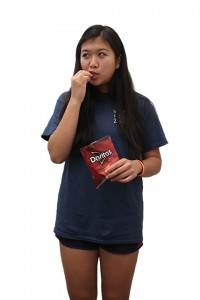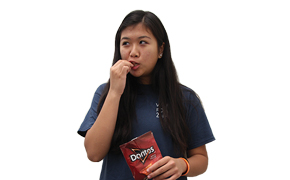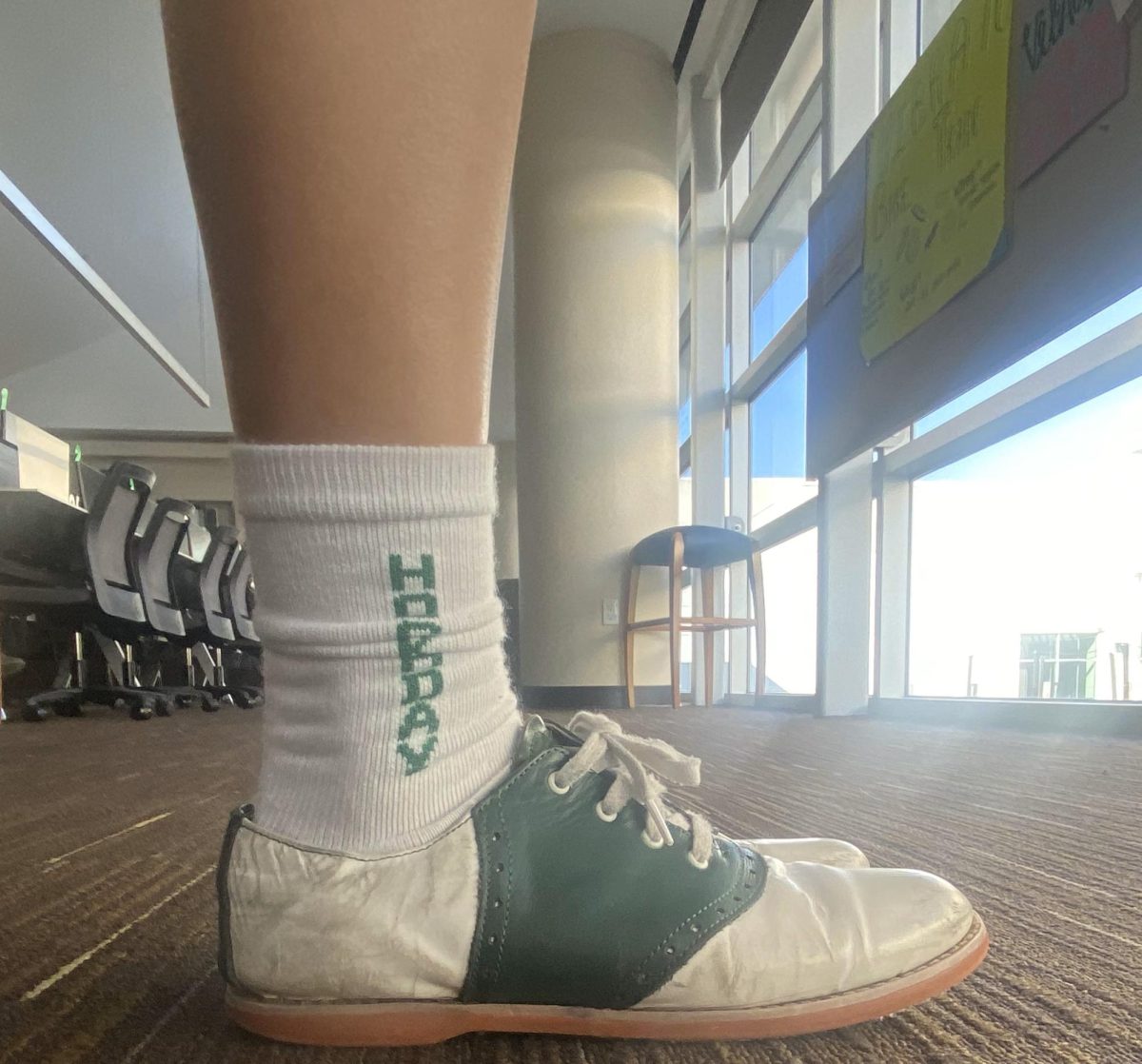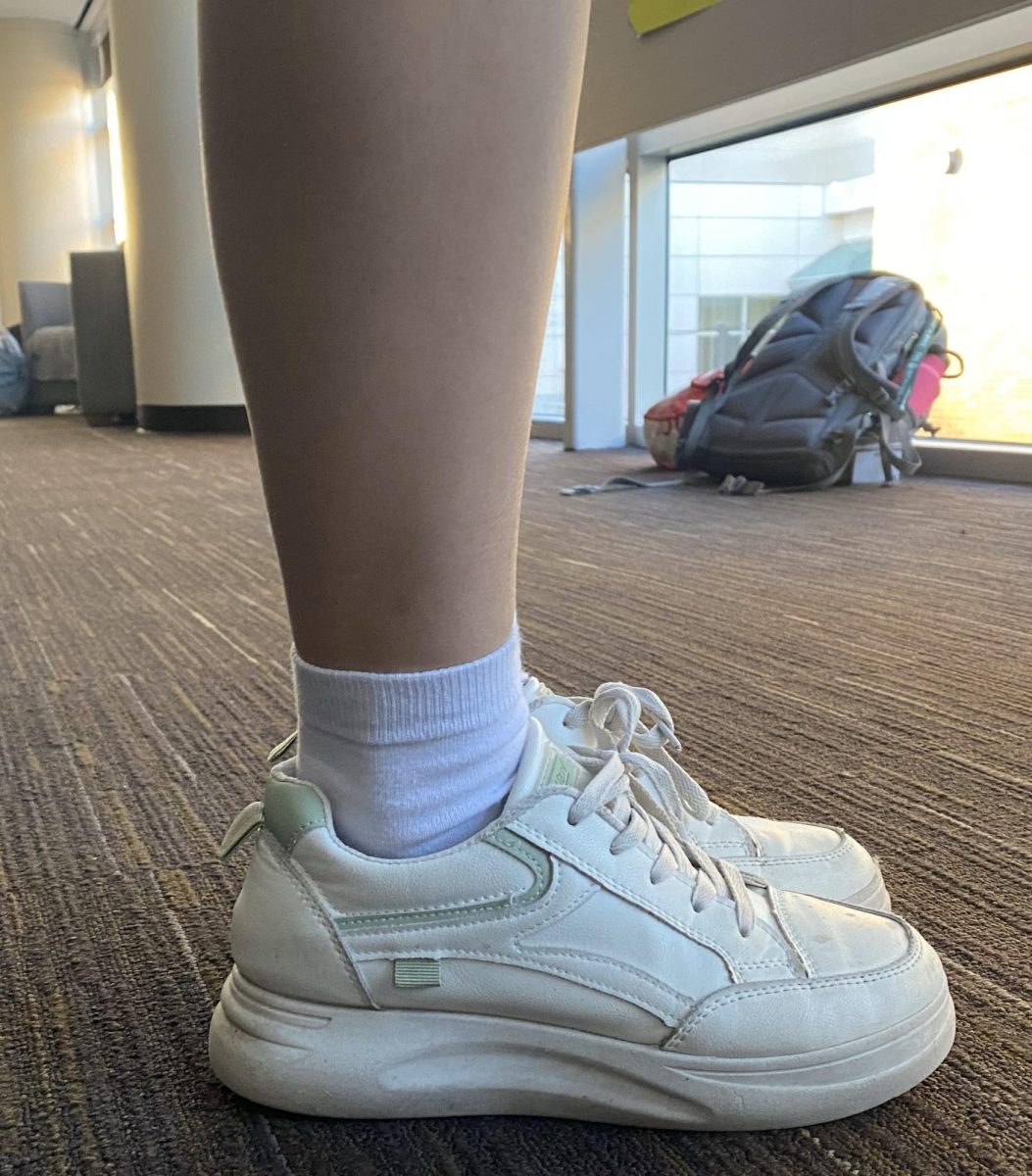No, We Shouldn’t:

It’s not unusual to walk into the dining hall and see students with small amounts of food on their tray that do not add up to the healthy calorie amount for a meal. Around the cafeteria, smells of chicken fried steak and mashed potatoes fill the air. It’s not long before the students succumb to the pressure and guiltily deviate from their diet restrictions.
According to the New York Times, only 15 percent of people who diet are successful, meaning that the other 85 percent either gain back what they lost within months, or they give up altogether. Breaking a diet often results in guilt, poor self-esteem and despair, which are often followed by binge eating with unhealthy foods. This is not only counterproductive, but also detrimental to the mental spirit.
Usually, diets emphasize being “skinny” instead of “fit.” While there is nothing wrong with being thin, our society often sees this as the only thing that is attractive or acceptable for women, especially in some careers.
For example, Models.com, a fashion news resource, says female models’ heights range from around 5 feet 8 inches tall to 6 feet tall, and their weights vary from 90 to 120 pounds. The healthy weight for these women is 128 to 145 pounds. According to A Plus, a digital media company co-founded by Ashton Kutcher, the average model in the ‘90s weighed 8 percent less than the average woman. In 2014, she weighs 23 percent less.
And it seems that we like going to the extremes. Plus size, a phrase that has gained a negative connotation to it, has models with BMIs nearing closer and closer to the average women. This has caused some controversy, and because of the negative take on looking “bigger,” diets of all sorts are being tested to try and achieve the goal of avoiding looking like plus size models.
Contrary to popular belief, there’s nothing wrong with being “big.” Whether it’s that a person has a bigger build, larger bones or more body fat or muscle, it does not mean that they are not as equally healthy, strong or athletic as a thinner person. The stigma of being bigger needs to be eradicated, and since dieting subconsciously promotes this culture, it should be too.
– Cheryl Hao
Yes, We Should:

A student sits at a table in Biggs Dining Hall, eating the sparse lunch she brought from home or not at all. This evokes concerns from friends about an eating disorder and the diet she has put herself on.
But the diet is not just for her weight. She is doing it for her self-esteem. Dieting is something that most of us do, consciously or not, according to the Mayo Clinic. According to Merriam-Webster, dieting is the “regulation of food, especially in order to improve physical condition.”
While food is necessary for life, mainstream America has supersized our appetites and waistlines. By eating constantly growing portions, Americans have been eating to a point where sustenance is no longer the main reason why we eat: we are eating for pleasure.
I gained way too much weight my freshman year. While I was still what the World Health Organization considers a “healthy weight,” I wasn’t happy with my appearance. The real disorder was not the diet I started my sophomore year, but how negatively I felt about myself after I gained that weight and how trapped I felt by food. I had lost control.
My diet does not consist of a grapefruit and water. I do not obsessively track my calories. Instead, I began to ask myself if I was actually hungry. I started an more balanced diet. I began running three to five miles a day and went to different exercise classes. I noticed a considerable improvement in my mood and eventually saw a significant drop in my weight after a few months.
But I realized something important about my diet. I stopped eating for pleasure and started eating for sustenance. I didn’t eat because I was bored or just eating because food was available.
I still treat myself, but not as often as I once did. I eat when I am hungry, drink more water and try and avoid snacking if at all possible. According to the Mayo Clinic, half of the time when you feel “hungry,” you’re actually just thirsty.
Dieting, despite the negative stigma that our culture has branded it with for the sake of body positivity, is more about making healthy choices in order to maintain a healthy weight and positive self-esteem. Dieting is not a “dirty word.”
– Kate Clement




